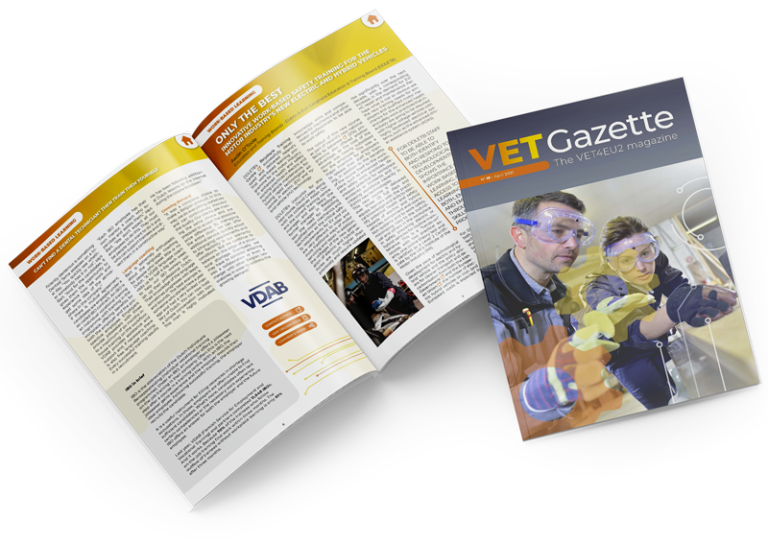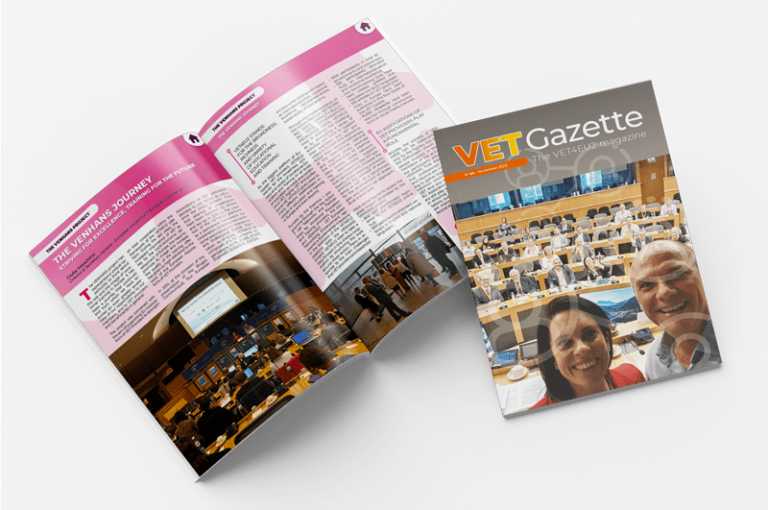Recent research showed that around 24 million students worldwide were at risk of not returning to school in autumn 2021 as a result of the interruption caused by the pandemic.
These were general studies not specific to VET schools, where the situation could be even more relevant due to the fact that VET in many contexts has the function of gathering and training the most fragile young people at risk of marginalisation.
It is important to make sure that VET learners feel comfortable in the school environment, especially now that they have come back to school after many months of remote learning.
Promoting well-being of students at school it will be a crucial aspect in the near future to reduce school drop-out.
It goes without saying that feeling well at school shouldn’t be considered anymore a fluke or a luxury. Institutions should intervene with the means at their disposal and, as mentioned in the SDG no. 3 of the 2030 agenda “Ensure healthy lives and promote well-being for all at all ages”, they should try to guarantee, as far as possible, healthy lives and promote well-being for all at all ages.
It is fair to ask what is causing demotivation and consequentially school drop-out. The causes are multiple, such as: the lack of interest in the subjects studied at school, the unfriendly school environment, pupils’ difficulty in dealing with socio-emotional aspects and the difficulties of teachers in managing demotivation and malaise of young people.
An important assumption to reduce early school leaving is the MOTIVATION of attending a specific school pathway. It has been noticed that nowadays pupils enrolling in VET pathways more often show lack of motivation even concerning the professional field they have chosen. For instance, a student may enrol in a mechanic path even if he/she is not keen about engines and cars.
In addition, they have a conflicting relationship with the VET organisation, probably due to the experiences in the previous school orders. It is then important to put in place Welcoming Practices to create a Welcoming, Engaging and Inclusive school environment which transforms the relationship between the institution and the students, and generates a situation of well-being, in which motivations for learning, both cultural and professional, can arise.
A possible solution to face the problem of school malaise was developed by a group of VET providers from different EU countries. The result of this partnership is the 3-H project, a KA2 initiative funded by the 2021 Erasmus+ call. The 3-H project (Head, Heart, Hand) is based on the assumption that VET should provide holistic education, i.e. education that takes into account in the same measure cognitive intelligence (head), social-emotional intelligence (heart) and manual intelligence (hand).
It was clear to the project consortium that, after many months where the students’ lives were changed by the pandemic, it was important to work on motivation and promotion of well-being at school.
The project partners came to the conclusion that, in order to promote these aspects, it is essential to equip staff with methodologies from the world of non-formal and informal education, such as coaching, team games, personalised planning, etc.
In practice, the project will work on:
- Development of knowledge and methodologies to enable teachers to work on social-emotional aspects;
- Outlining a strong welcoming model, dedicated to the first months of pupils’ entry into the VET pathways;
- Developing/adopting good practices that promote pupils’ well-being at school (from welcoming onwards) and motivate students.
Thus, the 3-H project aims to contribute to reducing the number of VET learners who are unmotivated or do not feel well at school through the adoption of teaching methodologies that value socio-emotional competences.
One of the expectations of the partners at the end of the project is to improve teachers’ ability to manage students’ demotivation and promote school well-being. Regarding the trainers, they are expected to improve their ability to manage social-emotional issues.
For more information, and to ask questions about the project, please get in touch with Luca Calligaro at: luca.calligaro@enac.org
The site page of the project will be available soon.








Responses